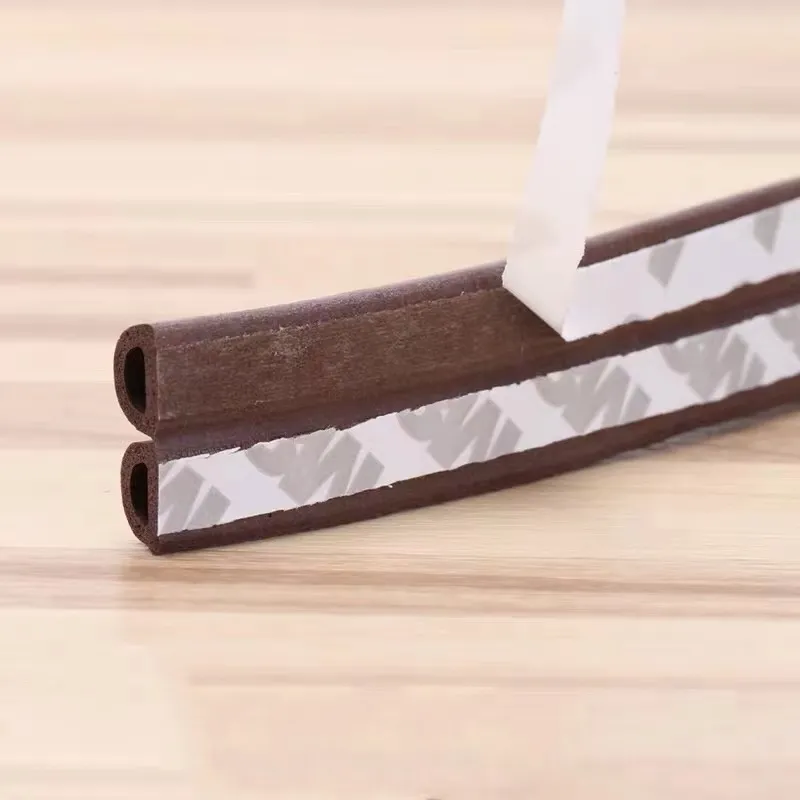silicone insulating strip
The Importance of Silicone Insulating Strips in Modern Applications
In today’s fast-paced technological environment, the demand for effective insulation materials has never been greater. One such material that has gained significant traction in various industries is silicone insulating strips. These strips are prized not only for their outstanding thermal and electrical insulation properties but also for their flexibility and durability. This article delves into the various applications, benefits, and considerations related to silicone insulating strips.
What Are Silicone Insulating Strips?
Silicone insulating strips are flexible, durable strips made from silicone rubber, a polymer known for its excellent heat resistance and electrical insulating properties. Unlike traditional insulating materials, silicone remains stable across a wide temperature range, typically from -50°C to +200°C (-58°F to +392°F). This property makes it suitable for both extreme heat and cold conditions.
These strips are commonly used in electrical appliances, automotive applications, heating elements, and many other sectors where insulation is critical to safety and efficiency. They can be manufactured in various sizes and shapes, making them versatile for specific needs.
Key Benefits of Silicone Insulating Strips
1. Thermal Stability Silicone insulating strips maintain their integrity even at high temperatures. This property makes them ideal for applications in ovens, toasters, and other appliances that operate under high heat.
2. Electrical Insulation Silicone is a poor conductor of electricity. Its use in insulating strips effectively prevents electrical leakage, making it a crucial component in electronics and electrical systems.
3. Flexibility and Adaptability The flexibility of silicone strips allows them to conform to various surfaces and shapes. This adaptability means they can be easily integrated into complex designs and spaces, providing comprehensive insulation without compromising functionality.
4. Chemical Resistance Silicone is resistant to many chemicals and environmental factors, making it suitable for use in harsh environments where other materials might degrade. This durability extends the lifespan of products using silicone insulating strips.
5. Environmental Stability Silicone does not degrade when exposed to sunlight, heat, or humidity. Therefore, it can be used in outdoor applications without fear of failure due to environmental wear.
Common Applications
silicone insulating strip

Silicone insulating strips are widely employed across different industries, including
- Electronics In the electronic sector, silicone strips are used to insulate various components from each other and the external environment. They are utilized in smartphones, laptops, and other consumer electronic devices to ensure safety and performance.
- Automotive Modern vehicles are equipped with numerous electrical components that require effective insulation. Silicone strips are employed in automotive wiring, connectors, and sensors to withstand extreme temperatures and vibrations.
- Home Appliances Many household appliances such as microwaves, dishwashers, and ovens utilize silicone insulating strips to improve energy efficiency and safety by preventing electrical or thermal leaks.
- Industrial Equipment Manufacturing and industrial machinery often operate in extreme conditions. Silicone insulating strips provide protection against electrical faults and enhance the efficiency of machines that experience high levels of heat.
Considerations When Using Silicone Insulating Strips
While silicone insulating strips offer numerous advantages, there are a few considerations for their selection and application
1. Cost Silicone materials can be more expensive compared to other insulating options. Businesses need to weigh the benefits against the costs, especially for large-scale projects.
2. Understanding Specifications It’s crucial to understand the specific requirements of the application, including temperature range, flexibility needs, and compatibility with other materials.
3. Installation Proper installation is vital for silicone insulating strips to perform as intended. This may involve specific techniques or tools to ensure a secure fit and seal.
Conclusion
Silicone insulating strips are an integral part of modern technology, offering remarkable benefits in terms of thermal and electrical insulation. Their versatility and durability make them ideal for various applications, from electronics to automotive and industrial uses. As industries continue to evolve and demand greater safety and efficiency, the role of materials like silicone will undoubtedly expand, solidifying their importance in the future of insulation technology. Whether you are a manufacturer or a DIY enthusiast, understanding the benefits and applications of silicone insulating strips can lead to smarter choices and innovations in various projects.
-
Under Door Draught Stopper: Essential ProtectionNewsJul.31,2025
-
Garage Door Seal and Weatherstrips for ProtectionNewsJul.31,2025
-
Edge Banding Tape for Perfect EdgesNewsJul.31,2025
-
Table Corner Guards and Wall Corner ProtectorsNewsJul.31,2025
-
Stair Nose Edging Trim and Tile Stair SolutionsNewsJul.31,2025
-
Truck Bed Rubber Mats for Pickup BedsNewsJul.31,2025
-
Window Weather Stripping for Noise ReductionNewsJul.29,2025